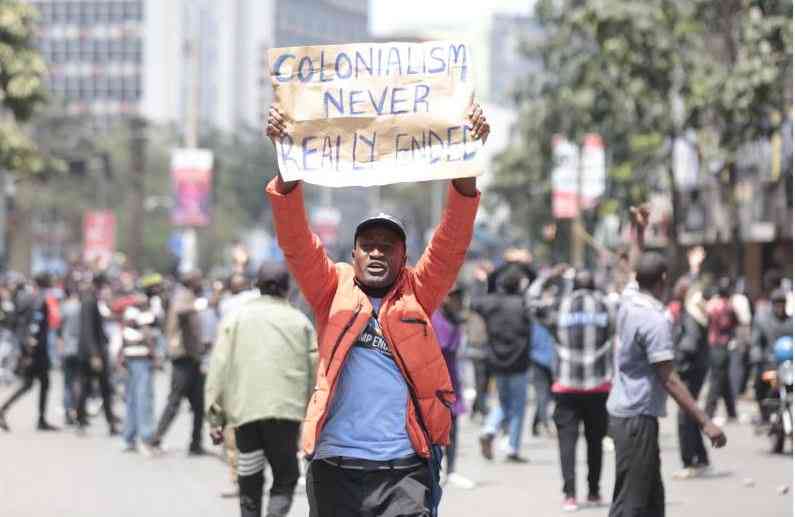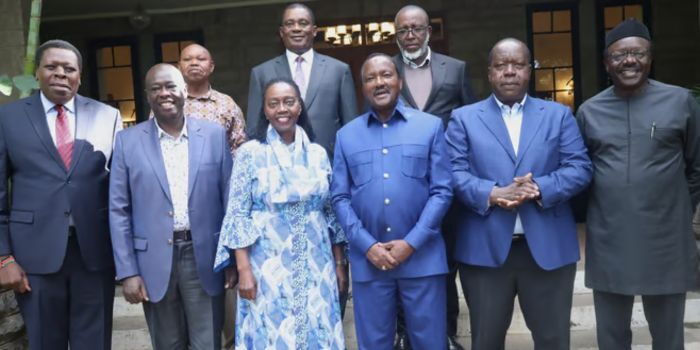Kenya's Gen Z Anti-Finance Bill Protests and Aftermath

Kenya is bracing for another wave of anti-government protests led by Generation Z youths on June 25, 2025, marking the anniversary of the impactful 2024 Anti-Finance Bill demonstrations. What began as online campaigns on platforms like TikTok and X (formerly Twitter) has evolved into coordinated street protests, driven by demands for justice for those killed in last year's unrest, an end to police brutality, accountability for state repression, and transparency in governance.
The 2024 protests, sparked by the controversial Finance Bill, descended into violence, resulting in at least 15 deaths and hundreds of arrests. One tragic example is Peter Macharia, a 27-year-old man who went missing after joining the June 25, 2024 demonstrations in Nairobi. His mother, Alice Wambui, has been in distress since, relentlessly searching for him. Despite being shown papers indicating Peter was treated for a minor gunshot wound at Kenyatta National Hospital and discharged, further information was withheld, leaving his family in agony. Wambui's struggle has led to her losing her job and facing severe financial hardship, prompting her to plead with President William Ruto for help in locating her son, expressing a desperate desire for closure, even if it means confirming his death.
The Kenya National Commission on Human Rights (KNCHR) Assistant Director, Martin Pepela, acknowledged a troubling rise in abductions and disappearances, raising serious concerns about state actors allegedly using unmarked cars and hooded personnel to target young people. KNCHR is working to help families find their loved ones, dead or alive, emphasizing that finding answers is a crucial form of justice. Pepela also highlighted the importance of Kenya ratifying the optional protocol on enforced disappearances to raise awareness among security agencies and the public about the severity of such human rights violations.
Beyond the missing, the upcoming protests also seek justice for blogger Albert Ojwang, whose death in police custody has ignited outrage, fueling hashtags like #LangatMustResign and #JusticeForOjwang. Meanwhile, fearless women took a central role in the 2024 anti-finance bill protests, leading chants, confronting riot police, and amplifying public outcry, contributing significantly to the withdrawal of the controversial bill. This year, the anger is even more focused, with calls for #OccupyStateHouse circulating.
The political landscape is fraught with tension ahead of June 25. Kenya Kwanza leaders, including National Assembly Speaker Moses Wetang’ula and Majority Leader Kimani Ichung’wah, have condemned the planned demonstrations, demanding the immediate arrest of opposition figures they accuse of inciting violence and destabilizing the nation. They argue that these are not expressions of freedom but deliberate attempts to derail the development agenda. Conversely, opposition leaders, such as former Deputy Prime Minister Rigathi Gachagua and Wiper Party leader Kalonzo Musyoka, have attended memorial prayer services for the youth killed in 2024 and have called for June 25 to be observed as a symbolic public holiday or for peaceful candle-lighting protests. However, some victims' families have urged politicians from both sides not to politicize the memorial, accusing them of using grief for political mileage.
Security arrangements are heightened, with Nairobi Regional Police Commander George Seda confirming that more police officers, including GSU personnel and water cannons, are being mobilized to ensure protests remain peaceful and confined to agreed routes. Initially, there were plans to seal off the city entirely. Nairobi Governor Johnson Sakaja has also strongly denied accusations of hiring armed goons to infiltrate peaceful demonstrations, terming them











